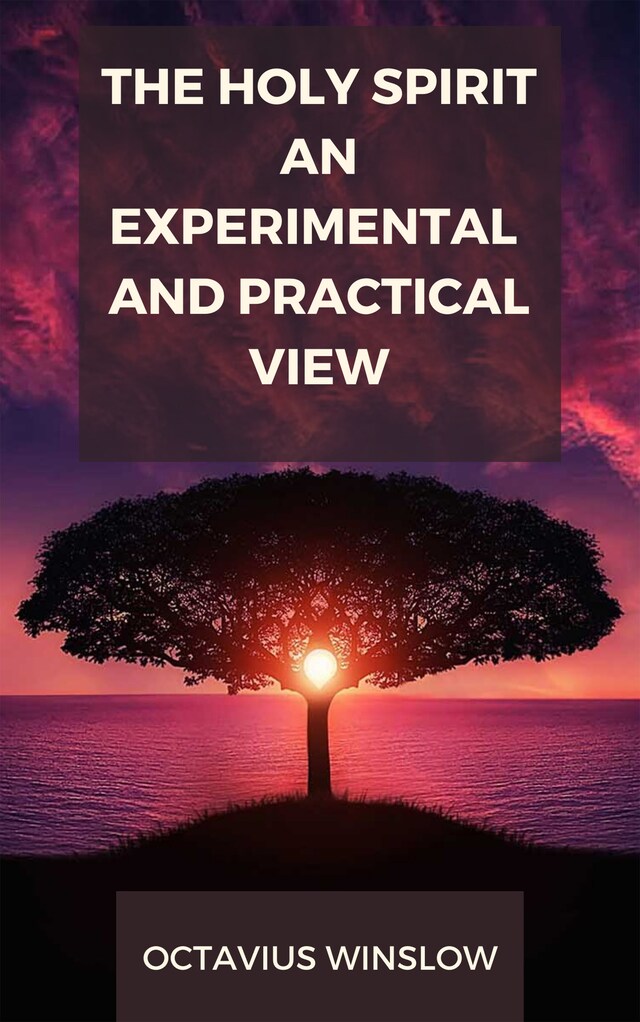
The Holy Spirit, An Experimental And Pratical View
Description of the book
The Holy Spirit, An Experimental And Pratical View is a message of meditation based on the Bible and written by Octavius Winslow (1 August 1808 – 5 March 1878), also known as "The Pilgrim's Companion", was a prominent 19th-century evangelical preacher in England and America. A Baptist minister for most of his life and contemporary of Charles Spurgeon and J. C. Ryle, he seceded to the Anglican church in his last decade.
Octavius's mother, Mary Forbes (1774 – 1854) had Scottish roots but was born and raised in Bermuda and was the only child of Dr. and Mrs George Forbes. On 6 September 1791, when she was just 17, she married Army Lieutenant Thomas Winslow of the 47th Regiment. Shortly after this, she came under spiritual convictions and was brought to gospel deliverance while pleading the promise, "Ask, and ye shall receive"
Octavius seems to have been given his name because he was then the eighth surviving child. As a child, Octavius and family would worship at Pentonville Chapel under the ministry of Rev. Thomas Sheppard. During this time of his life, he suffered from what seemed to be a life-threatening illness. While staying in Twickenham, a nurse accidentally administered an incorrect medicine that doctors would later say would have killed ten men. Octavius's father was from a wealthy family but by 1815, following his retirement from the army, he suffered ill health and the loss of his fortune due to one of several national financial disasters that occurred in this period. A decision was soon made to move to America, but before Mr. Winslow could join his wife and children in New York, he died. At the same time, their youngest child died too. Octavius was but 7 years old.
Widowed at 40, responsible for a large family, and scarcely settled in America, Mrs Winslow's entire life was turned upside down. Worst of all, spiritual darkness and despondency overwhelmed her for many months.
They were a deeply religious family and Octavius later wrote a book about their experiences from his mother's perspective in a book entitled Life in Jesus.
Family historian D. Kenelm Winslow recorded their plight:
"Mary had the youngsters out on the streets of New York selling matches and newspapers as soon as they were old enough for such tasks. She set them to any job they could tackle, gathering them around her at night for scripture reading followed by a good sound evangelical harangue and prayers."
Mary and her children lived in New York City until 1820. Then, after a four-month visit back to England, they would then move to Sing Sing, NY on the Hudson River for "four years of congenial repose". In 1824, they would move back to New York City for a season of "special revival" where brothers Octavius, Isaac, and George would become converted and later convinced of God's calling to ministry.
 Octavius Winslow
Octavius Winslow 243 Pages
243 Pages